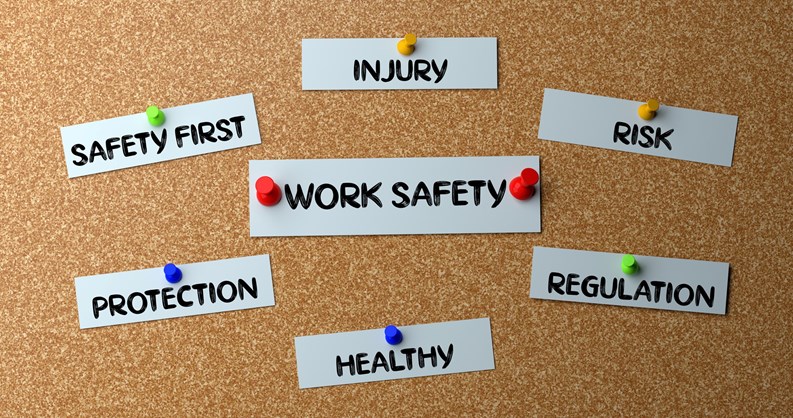Editor’s Note: During this crisis, New England Condominium will be passing along information, tips, and FAQs submitted by our network of industry professionals, including attorneys, managers, and other subject matter experts. The views and opinions expressed are those of the contributors, and as the situation evolves in the coming days and weeks, those views and opinions may evolve as well. We encourage readers to be mindful of this; check posting dates, make note of contributors’ locations and industries, and above all, consult with your own community professionals as you and your neighbors navigate this challenging landscape.
On Monday, May 11, 2020, Governor Baker announced a four-phase plan to re-open Massachusetts starting on May 18, 2020. While more details and guidance on the Massachusetts plan will be coming out in the coming days, the Occupational Safety and Health Administration (OSHA) has already issued guidance for various industries and employers to provide safe work environments for their employees. If you have not started to plan for re-opening your business, and have not prepared a COVID-19 Workplace Policy, you should do so immediately.
The Occupational Safety and Health Act of 1970 is not new. This law states that employers have an obligation to assure safe and healthy working conditions for their employees. If an employee has a “good faith belief” that their workplace is not safe, they can file a complaint with OSHA. In addition, the law also provides that if an employer retaliates in any way against an employee for making a good faith complaint of an unsafe work environment, the employer can be liable for retaliation under the law. An example of an act that could be perceived as retaliation is an employee complaining to his supervisor that he does not feel safe at work because the workplace has not been cleaned. The employer tells the employee that if they don’t feel safe, they can stay home, but must use their vacation/sick/personal time. This is not permissible. An employee should not lose an employee benefit because the employer does not want to provide a safe work environment. The appropriate response would be for the employer to institute a cleaning policy.
Employers should do whatever is necessary to minimize fear due to unsafe working conditions in the workplace. In order to reduce the impact of COVID-19 outbreak conditions on businesses, workers, customers and the public, it is important to plan now.
1. The first thing that you must stay on top of is ensuring that you are complying with all Federal, State and Local orders, regulations and laws.
2. Understand what public health guidance is available to you from your state and local health departments.
3. Identify risk levels in your workplace and determine what you, as an employer, can do to mitigate and/or control exposure to the virus in the workplace before you reopen. Do you have space in your workplace such that employees can social distance? Can you make physical changes to the workplace, such as moving desks or installing plexiglass shields? Do you have a cleaning/sanitizing schedule in place? Do you have cleaning supplies and hand sanitizer? Do you have masks for your employees?
4. Do you have a return to work policy?
For most employers, protecting workers will depend on emphasizing basic infection prevention measures. Promote frequent and thorough hand washing and provide hand sanitizer. Require the use of face coverings when social distancing is not possible. Discourage workers from using other workers’ phones, desks, offices, computers, etc. If employees can work remotely, encourage them to do so. Other alternatives could be rotating shifts or employees working outside of regular business hours in order to increase the physical distance between and among employees.
Require employees to stay home if they are sick. It is no longer acceptable for employees to come to work when coughing, sneezing, and exhibiting obvious cold and flu symptoms. Check employee temperatures when they arrive to work. Encourage employees to self-monitor for signs and symptoms of COVID-19 if they suspect possible exposure. Employers should develop policies and procedures for employees to report when they are sick or experiencing symptoms of COVID-19.
Lastly, ensure that your sick leave policies are up to date and are in compliance with all current federal and state laws and most importantly, make sure that your employees are aware of these policies. Maintain flexible policies that permit employees to stay home to care for a sick family member. Recognize that it may be difficult for employees to obtain a note from their healthcare provider.
Be aware of your employees’ concerns about pay, leave, safety, health and other issues that may arise due to COVID-19. Provide adequate and appropriate training, education and informational material about business essential job functions and employee health and safety. Informed employees who feel safe at work are less likely to be unnecessarily absent and will appreciate the steps you take to keep them safe and healthy.
This advisory is offered as a service to clients and friends of Marcus Errico Emmer & Brooks PC and New England Condominium, and is intended as an informal summary of certain recent legislation, cases, rulings and other developments. This advisory does not constitute legal advice or a legal opinion, and is not an adequate substitute for the advice of counsel.







Leave a Comment